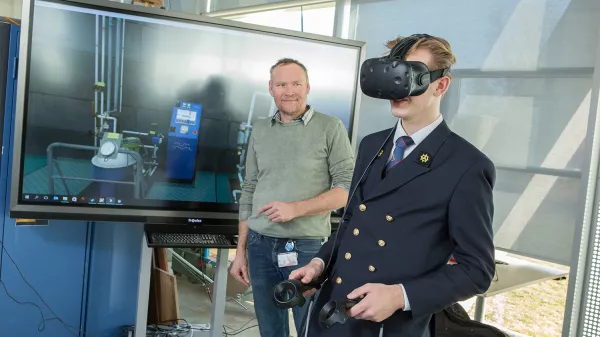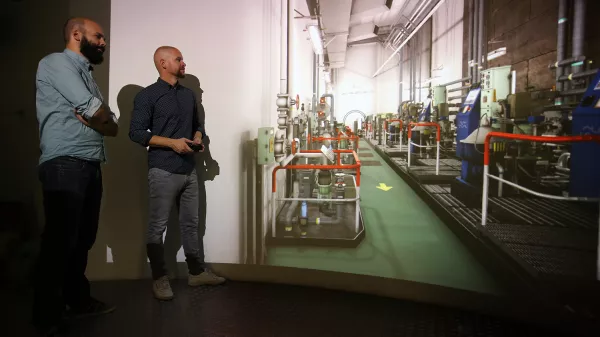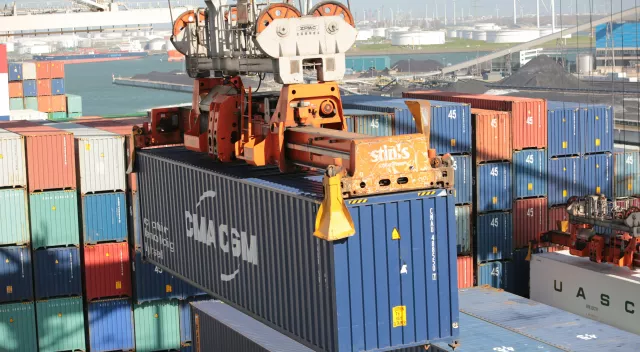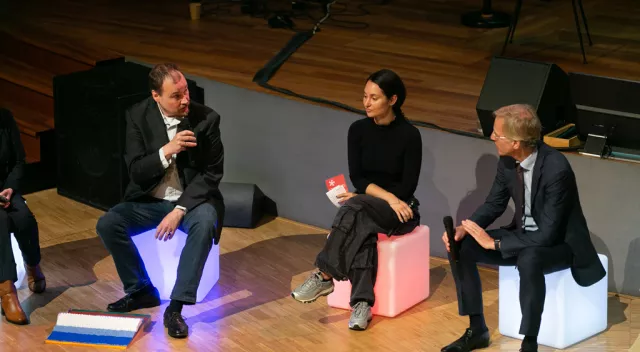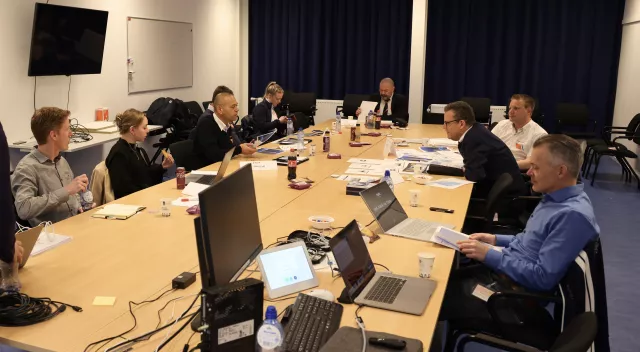
Maritime Innovation Techniques
The maritime sector is at a crossroads with on the one hand the demand from society for safer and cleaner ships and on the other hand the technological developments regarding sensors, data collection, and data processing. The Maritime Innovation Techniques (MIT) lectorate of the Maritiem Instituut Willem Barentsz (MIWB) conducts practical research with regard to technological innovations in the ship building and shipping industry.
Within the professorship, close cooperation is sought with students, companies and other educational and research institutions – always with safety, knowledge and innovation by applying new technologies as a linking pin.
Projects
In 2020, the TODDIS project was initiated by the research group. TODDIS stands for "Transferring Operational Data into Design Information for Ships." This project stems from five observations:
- The maritime sector is compelled to adopt radically different ship designs due to external factors. On one hand, this is driven by technology (e.g., unmanned or minimally manned navigation), and on the other hand, it is market-driven (demanding significant reductions in emissions, particularly greenhouse gases).
- Ship designers require fast design methods to meet these demands. Although numerous methods exist, they have become outdated. Moreover, the "designer" could also be an optimizing machine that evaluates numerous design variants to find an optimum solution.
- Ships are being equipped with sensors on a large scale, with each sensor often measuring a specific phenomenon and drawing conclusions about a particular condition or device.
- Many small and medium-sized enterprises (SMEs) feel the need to effectively utilize artificial intelligence and big data.
- There is a significant lack of knowledge regarding this subject among students and professionals.
The desired design methods are mostly empirical, often originating from naval research institutes or experiments. However, a new source of data has emerged: large amounts of sensor data. The hypothesis is that this data, when processed using advanced algorithms, can be transformed into new ship design methods. The TODDIS project aims to investigate the following questions:
- To what extent can extensively collected data serve as a sufficient basis for developing such tools?
- What tools and methods are necessary to transform that data into usable tools?
- What is the ranking of tool types in terms of feasibility? In other words, which tools can be expected sooner and which ones later?
- Currently, a substantial amount of data is being collected onboard ships, primarily for daily operations. How can these data be utilized for dual purposes?
- The "advanced algorithms" mentioned in the hypothesis not only have technical implications but also require application skills from current and future employees. How can this be addressed?
- If a new generation of tools is based on large amounts of data, what about ownership? What are the responsibilities and liabilities associated with their use? How can intellectual property protection be ensured?
The TODDIS project involves more than ten companies and institutions. The work is divided into six sub-projects:
- Sensors, data collection, their transportation, and integrity.
- From data to tools.
- Tools to support ship operations.
- Tools to support ship design.
- Knowledge development for the advanced numerical methods for shipX minor in higher professional education (hbo-minor).
- Legal prerequisites, intellectual property (IP), and liabilities.
Simulation
Simulation is a spearhead of the MIWB, which operates some state of the art (computer) simulators on the island of Terschelling. These include inter alia bridge simulators and an engine room simulator. This simulation culture is continued with the future development of a new simulator for the loading of a ship, to which the lectorate will also contribute. Furthermore, at this very moment, research is being done into a game that is aimed at learning aspects of ship stability. The research question is whether the use of a game could make the stabilisation education more efficient or effective.
Who do we work with?
The Dutch maritime sector contains a number of large companies and a large number of small businesses. That structure results in a great level of cooperation and co-creation; after all, few companies are large enough to deal with everything in-house. The cooperation also stretches to knowledge and educational institutions, including the MIT Lectorate. Besides, there are prolific associations with branch organisations, such as the KVNR (Koninklijke Vereniging van Nederlandse Reders, the Royal Dutch Shipowner Association), NMT (Netherlands Maritime Technology), the Association of Dutch Suppliers in the Oil and Gas Industry and Offshore Renewable Industry (previously IRO) and the Water Builders Association (Vereniging van Waterbouwers). In the educational sector, there a good collegial contacts with other Dutch maritime educational institutions, and closer to home, we cooperate with sister lectorates such as Computer Vision & Data Science, Serious Gaming, and Maritime Law.
Contact
NHL Stenden Hogeschool
Maritiem Instituut Willem Barentsz
- +31 6 53 98 40 96
- herbert.koelman@nhlstenden.com
Team
The research group consists of a multidisciplinary team of researchers, lecturers, and students, led by Herbert Koelman, the professor. Through practice-oriented research, we enhance knowledge exchange between education and the professional field. The research group is part of the Maritime Research Group, which includes the Maritime Law research group, led by Welmoed van der Velde. Within the research group, both research groups collaborate closely in the fields of technology and regulations in the maritime sector.
Team Members
- Dr. ir. H.J. Koelman
- Mr. Dr. Welmoed van der Velde
- Arjan van Vliet
- Harold van den Oever
- Joyce Verhees
- Ralph Schaafsma
- Sietske Moussault
- Frederik Maats
- Diego De León
Lectoral Address Mr. Herbert J. Koelman MSc Ph. D.
"It's time again to determine what it's all about."
3.93 MB (.PDF)




